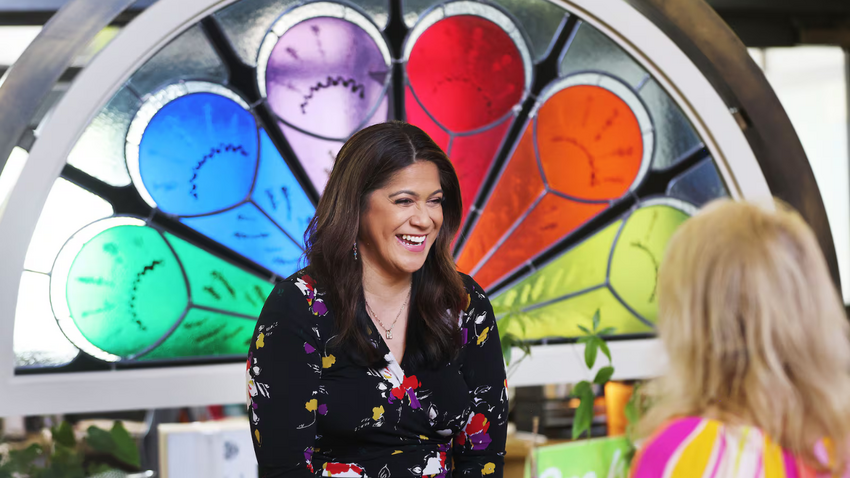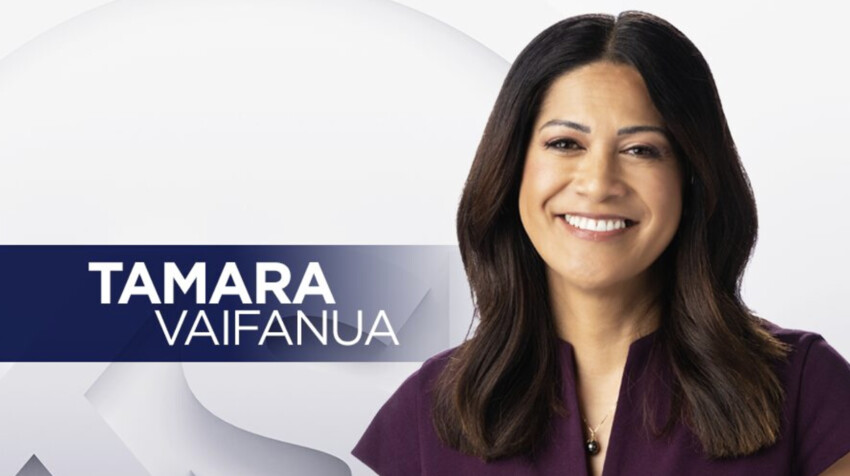Samoan Reporer Tamara Vaifanua wins Emmy

“Use your voice. Anyone can learn the technical skills of presenting on camera, but what sets you apart is your lived experience, your culture, your perspective, your upbringing, your truth. Those are your strengths.”
“The world is hungry for Pacific stories, and we have a responsibility to tell them. Do not shrink yourself. Stand tall in who you are.”
Those words sit at the heart of Tamara Vaifanua’s work, and they land differently now as she marks a significant milestone in her career. The Samoan reporter has earned an Emmy Award for her coverage of the Maui wildfires — an honour she immediately redirects back to the people of Maui.
“I am humbled by this honor,” she told The New Atoll. “Being recognized for a piece about the people of Maui is bittersweet. Their loss was heartbreaking. Being invited into their lives during such a painful time is something I will always carry with me. This recognition feels like an extension of their voices, not mine.”
Her assignment in Maui reshaped her understanding of community strength. “What stood out was the selflessness. People who had lost everything were still looking for ways to help each other. Their humility reminded me of who we are as Polynesians.”

Even as she reported on devastation, she remained anchored by her cultural values. “This was not just another assignment for me. Because of who I am and who I represent, I approached these stories with deep care. This documentary reached a global audience, and I felt a responsibility to show the world both the devastation and the resilience of the people of Maui.”
Tamara is widely recognised as Utah’s first Samoan news anchor, a role she sees as a responsibility rather than a title. “Being Samoan and reporting in Utah comes with a deep sense of responsibility. I intentionally seek out stories that impact our Pacific Islander community because our voices are underrepresented in mainstream media. I want to show that our contributions go far beyond athletics.”
Throughout her career, she has been drawn to stories centred on communities often overlooked. “I have always been drawn to stories that impact underrepresented communities, youth, education, sports with deeper meaning, faith and service.”
Her approach shifted once she stopped trying to fit a traditional newsroom mould. “For a long time, I tried to fit into an image of what I thought a news anchor should be. The turning point was realizing that my greatest strength is my Samoan identity. I come from voyagers, creators and storytellers. Once I embraced that, everything shifted.”
Her heritage grounds her and shapes how she carries communities in her reporting. “My heritage grounds me, guides my decisions and reminds me to approach every story with respect, context and care.”
Tamara didn’t always think she’d work in news. “I did not originally plan on a career in television news until I took a TV production class at Southern Utah University and immediately fell in love with storytelling.” Her journey took her to newsrooms in Nevada and Arizona before she returned to Utah, where she became a familiar face.
Her recent experiences have also strengthened her connection to the wider Pacific media landscape. “I met journalists from across the Pacific and realized how connected our global community is. Moving forward, I want to pursue stories that amplify Pacific identity on an international level.”
She encourages young Pacific Islanders entering journalism to lead with their cultural truth. “Use your voice. Anyone can learn the technical skills of presenting on camera, but what sets you apart is your lived experience, your culture, your perspective, your upbringing, your truth. Those are your strengths.”
And she reminds non-Indigenous journalists to approach Pacific communities with care. “Approach with respect, patience and humility. Learn the history and the protocols. Build relationships instead of dropping in for a story. And remember that trust is earned.”
Tamara’s roots anchor every part of her work. Her father, Vaimasima Eutika Vaifanua, is from Alao in American Samoa, and her mother, Laila Skipps Vaifanua, is from Pesega in Samoa. “I am a proud Samoan and everything I am comes from my parents,” she said.
Her Emmy win is more than a milestone—it’s a reminder that Pacific voices are essential in shaping their own narratives. Tamara hopes the next generation of storytellers will stand firmly in their identity. “The world is hungry for Pacific stories, and we have a responsibility to tell them. Do not shrink yourself. Stand tall in who you are.”
